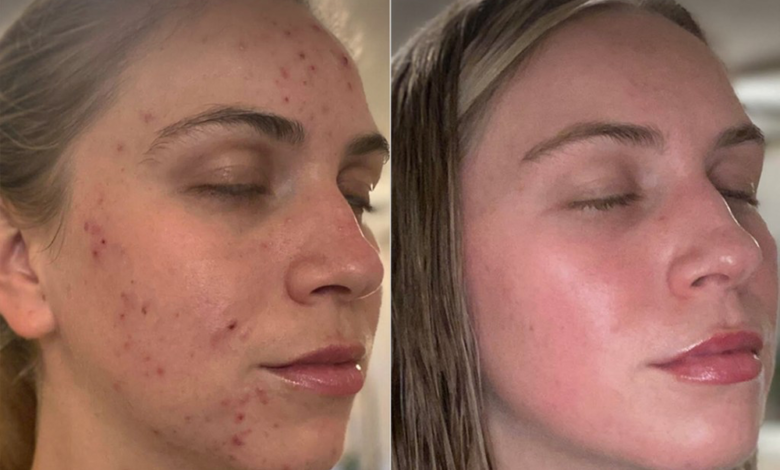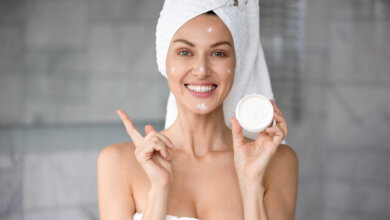Teen Acne: How to Treat & Prevent This Common Skin Condition
Teen Acne: How to Treat & Prevent

Acne vulgaris, commonly known as acne, is a prevalent skin condition affecting millions of teenagers worldwide. It occurs when hair follicles become clogged with oil and dead skin cells, creating an environment for bacteria to thrive. This can lead to the development of various types of blemishes, including whiteheads, blackheads, papules, pustules, nodules, and cysts. While acne isn’t life-threatening, it can cause emotional distress and leave lasting scars if not managed effectively. If you are searching for a genuine acne cure then you can buy accutane online
Understanding the Causes of Teen Acne:
Several factors contribute to acne development in teenagers:
- Hormonal fluctuations: Increased androgen (male sex hormone) levels during puberty stimulate oil production in the sebaceous glands. This excess oil can clog pores and create a breeding ground for bacteria.
- Bacterial growth: Propionibacterium acnes (P. acnes) bacteria thrive in the oily environment within clogged pores. These bacteria contribute to inflammation and the formation of pimples. you can also try isotretinoin 40 mg
- Genetics: Family history plays a role. If you have parents or siblings with acne, you’re more likely to experience it as well.
- Diet: While no single food directly causes acne, some studies suggest a link between high glycemic index foods (sugary drinks, refined carbohydrates) and breakouts. Moderation is key.
- Stress: Chronic stress can exacerbate acne by affecting hormone regulation.
Types of Acne:
Acne can manifest in different forms, each requiring tailored treatment approaches:
- Non-inflammatory Acne:
- Whiteheads: Closed pores filled with sebum (oil) and dead skin cells.
- Blackheads: Open pores filled with sebum that have oxidized on the surface, appearing black.
- Inflammatory Acne:
- Papules: Small, red bumps without pus.
- Pustules: Small, red bumps with white or yellow pus centers.
- Nodules: Larger, solid, painful bumps beneath the skin’s surface.
- Cysts: Large, pus-filled bumps deep within the skin, often leaving scars.
Treatment Options for Teen Acne:
Here’s an overview of common acne treatment options, categorized by severity:
Over-the-Counter (OTC) Treatments (Mild Acne):
- Benzoyl peroxide: Kills acne-causing bacteria and helps unclog pores. Can be drying and irritating.
- Salicylic acid: Exfoliates dead skin cells and unclogs pores. Gentler than benzoyl peroxide.
- Alpha hydroxy acids (AHAs): Promote skin cell turnover and unclog pores. May cause sun sensitivity.
- Topical retinoids: Promote skin cell turnover and reduce inflammation. Might cause dryness and irritation initially.
Prescription Treatments (Moderate to Severe Acne):
- Oral antibiotics: Target P. acnes bacteria to reduce inflammation. Long-term use can lead to antibiotic resistance.
- Combination birth control pills (for females): Can regulate hormones and improve acne in some women. Requires consultation with a doctor.
- Isotretinoin (Accutane): A powerful medication reserved for severe acne cases. Comes with potential side effects and requires close monitoring by a dermatologist.
Other Treatment Options:
- Light therapy: Blue light or red light therapy can target bacteria and reduce inflammation.
- Chemical peels: Exfoliate the skin and can be helpful for mild to moderate acne.
- Extractions: A dermatologist can professionally extract blackheads and whiteheads.
Lifestyle Modifications for Acne Prevention:
- Gentle skincare routine: Wash your face twice daily with a gentle cleanser and lukewarm water. Avoid harsh scrubs or excessive washing.
- Moisturize: Using a non-comedogenic moisturizer helps prevent dryness and irritation that can worsen acne.
- Diet: Focus on a balanced diet rich in fruits, vegetables, and whole grains. Limit sugary drinks and processed foods.
- Stress management: Practice relaxation techniques like meditation or yoga to manage stress levels.
- Don’t pick or pop pimples: This can worsen inflammation and lead to scarring.
- Sun protection: Use a non-comedogenic sunscreen daily to protect your skin from sun damage, which can worsen acne.
Psychological Impact of Acne:
- Teenagers with acne can experience emotional distress, low self-esteem, and social anxiety due to the visibility of breakouts.
- Addressing these concerns is crucial. Support from parents, friends, and healthcare professionals can make a significant difference.
The Importance of Consistency:
- Any treatment plan, whether OTC or prescription, requires consistent use for optimal results. Don’t expect immediate improvement; stick with your routine for at least 6-8 weeks before evaluating its effectiveness.
The Role of Sleep:
- Getting adequate sleep (7-8 hours per night) is essential for overall health and can contribute to better skin health. When you sleep, your body produces hormones that help regulate oil production and promote skin repair.
Cosmetics and Makeup:
- Choose oil-free, non-comedogenic makeup products that won’t clog pores.
- Remove makeup thoroughly before going to bed to prevent clogged pores and breakouts.
Individualized Approach:
- What works for one person might not work for another. Finding the most effective treatment plan might involve some trial and error under a dermatologist’s guidance.
Long-Term Management:
- Even after successful treatment, acne can recur, especially during hormonal fluctuations. Consistent maintenance routines and a healthy lifestyle can help minimize future breakouts.
The Role of Patience and Positivity:
- Acne management takes time and dedication. Maintaining a positive attitude and focusing on overall well-being alongside treatment can significantly improve the journey.
Emerging Treatments:
- Research is ongoing to explore new and innovative acne treatment options, including topical probiotics, microbiome-modulating therapies, and light-emitting diode (LED) therapy with different wavelengths.
Importance of Consulting a Dermatologist:
A dermatologist is a skin specialist who can diagnose your specific acne type, recommend the most suitable treatment plan, and monitor your progress. They can also offer guidance on scar treatment and address any concerns you might have





